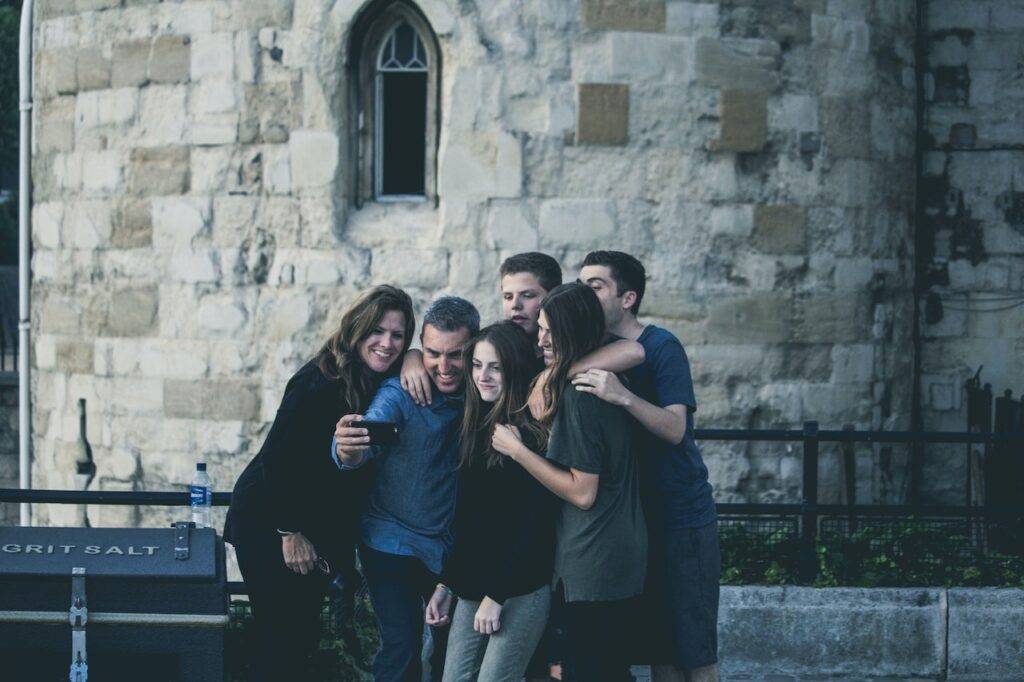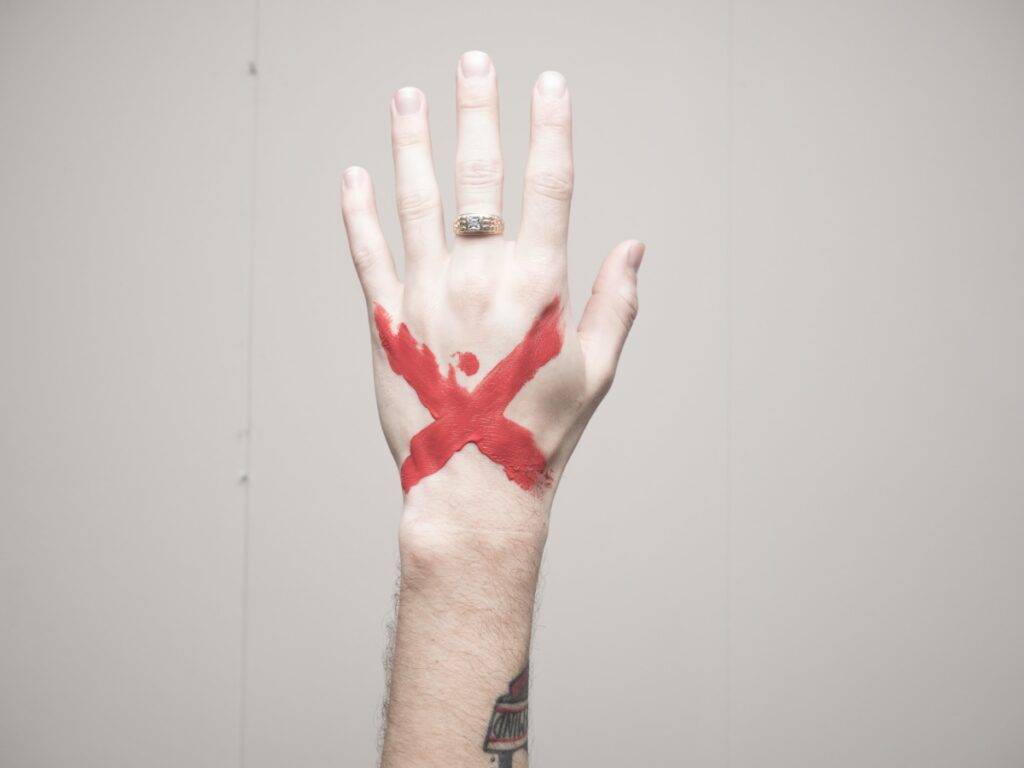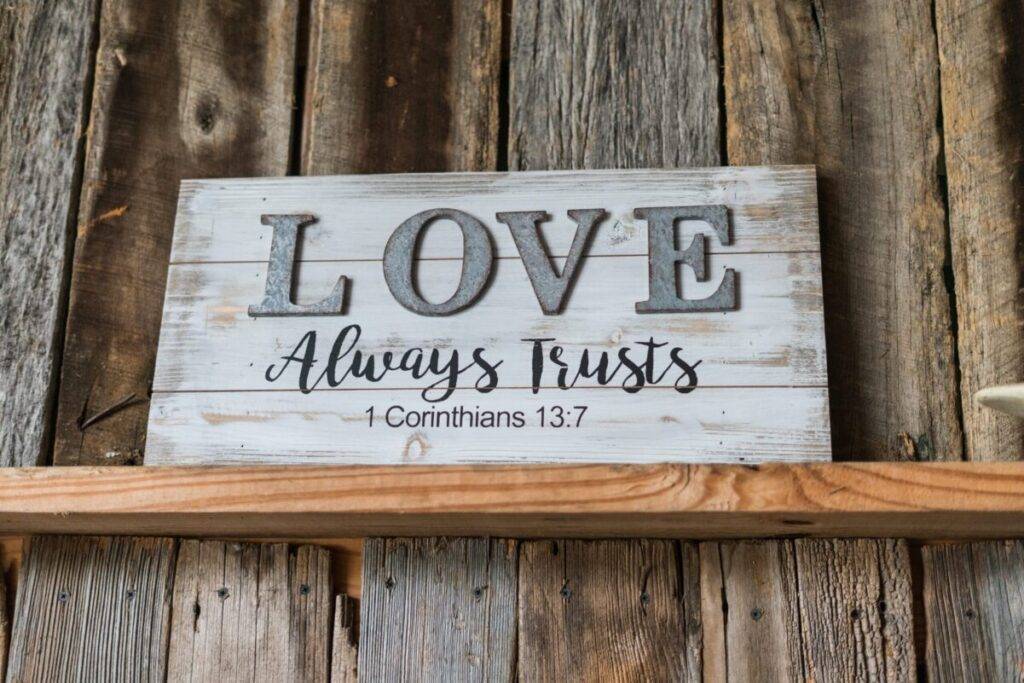Feeling unliked or unwanted can be a lonely and challenging experience, often leaving us asking, “Why Does Nobody Like Me?” In this article, we will delve into the reasons behind this troubling question and explore the importance of gaining perspective and cultivating genuine connections to overcome these feelings.
The purpose of this article is to help you:
- Understand the root causes of feeling unliked
- Develop a healthier mindset and self-image
- Improve your social skills and relationships
- Learn how to navigate rejection and setbacks
First, we’ll address the feeling of being unliked, a common issue many people face. We’ll then help you understand Why Does Nobody Like Me? by examining the internal and external factors that may be contributing to your situation. Gaining a clear perspective on these factors will allow you to focus on what you can change, leading to personal growth and healthier relationships.
Next, we’ll discuss the importance of building self-confidence and enhancing your social skills. By developing these abilities, you’ll be better equipped to form genuine connections with others. Lastly, we’ll explore strategies for nurturing existing relationships and dealing with rejection, ensuring you can maintain strong bonds and bounce back from any setbacks.
Ready to gain perspective and start forming meaningful connections? Join us as we uncover the answer to “Why Does Nobody Like Me?” and help you improve your social life.
Table of Contents
Identifying the Root Cause

To understand “Why Does Nobody Like Me?“, it’s crucial to identify the root causes of this feeling. This process involves examining both internal factors, such as self-reflection, and external factors that may be influencing your situation.
A. Self-reflection
- Personal behaviour: Analyze your habits and actions to determine if they may be off-putting or contributing to your feelings of being unliked. Be honest with yourself, and consider seeking feedback from trusted friends or family members.
- Communication style: Reflect on your communication style and how you express yourself to others. If you struggle to convey your thoughts or feelings, it could lead to misunderstandings or make it difficult for others to connect with you.
- Attitude and mindset: A negative outlook can impact how others perceive you. By changing your mindset, you can improve your interactions and how people respond to you.
B. External factors
- Social environment: The people you surround yourself with can significantly influence your experiences. If you find yourself in an environment where you feel unliked, it may be time to explore new social circles.
- Cultural differences: Sometimes, cultural differences can lead to misunderstandings or feelings of being unliked. Learning about other cultures and being open to new perspectives can help bridge these gaps.
- Misunderstandings: Communication breakdowns can create the perception that you’re unliked. Actively work to clear up any misconceptions and maintain open lines of communication.
By identifying the root causes behind “Why Does Nobody Like Me?“, you can address these issues and develop a more positive self-image. Remember, it’s essential, to be honest with yourself during this process and willing to make changes where necessary.
For more insight into understanding the reasons behind feeling unliked and improving your social interactions, check out our article Why Do People Stare at Me? This guide will help you gain perspective on how others perceive you and offer practical tips for creating more positive experiences in your social life.
Gaining Perspective
Now that we’ve identified the root causes behind “Why Does Nobody Like Me?“, it’s time to focus on gaining perspective. Shifting your mindset can lead to increased self-esteem and improved social connections.
A. Challenging negative self-talk
Negative self-talk can fuel feelings of being unliked, creating a vicious cycle. Break free from this pattern by:
- Becoming aware of negative thoughts
- Replacing them with positive affirmations
- Practising mindfulness to stay present
By challenging negative self-talk, you’ll start to view yourself and your relationships in a healthier light.
B. Focusing on self-improvement
Embrace personal growth to overcome the question of “Why Does Nobody Like Me?“:
- Identify areas for improvement
- Set realistic goals
- Seek out resources and support
- Monitor your progress and celebrate achievements
By focusing on self-improvement, you’ll develop a greater sense of self-worth and become more appealing to others.
C. Recognizing personal strengths
Acknowledging your strengths can help shift your focus from the question of “Why Does Nobody Like Me?” to a more positive outlook. Take time to:
- List your talents and skills
- Reflect on compliments you’ve received
- Recognize your unique traits and qualities
Embracing your strengths will boost your self-confidence and enable you to make genuine connections.
D. Learning from past experiences
Our past experiences can offer valuable insights into improving our social lives. To learn from these experiences:
- Reflect on successful and unsuccessful interactions
- Identify patterns and areas for growth
- Apply these lessons to future situations
By learning from your past, you can develop strategies to overcome feelings of being unliked and foster meaningful connections.
In summary, gaining perspective is key to understanding and overcoming the question, “Why Does Nobody Like Me?” By challenging negative self-talk, focusing on self-improvement, recognizing personal strengths, and learning from past experiences, you’ll create a more positive self-image and attract genuine connections. Embrace this new perspective and transform your social life for the better.
Building Self-Confidence
As we continue exploring the question, “Why Does Nobody Like Me?”, building self-confidence is essential. A strong sense of self-worth can positively impact your social interactions and help you form genuine connections. Let’s examine the critical steps to building self-confidence.
A. Establishing personal goals
Setting and achieving personal goals can boost your self-confidence and change how others perceive you. To establish effective goals:
- Identify areas of personal growth
- Set SMART (Specific, Measurable, Achievable, Relevant, Time-bound) goals
- Break goals down into manageable steps
- Monitor your progress and adjust as needed
By working towards personal goals, you’ll overcome the feeling of “I want a relationship but no one likes me” and “I try to make friends, but nobody likes me.”
B. Developing self-awareness
Becoming more self-aware can help you understand why you feel like “no one cares about me” or “I feel like no one likes me at work.” To increase self-awareness:
- Practice mindfulness and meditation
- Seek feedback from trusted friends or family members
- Reflect on your emotions, thoughts, and behaviours
Developing self-awareness can lead to healthier relationships and a better understanding of the question, “Why Does Nobody Like Me?“
C. Practicing self-compassion
Overcoming the critical inner voice and being kind to yourself are crucial for self-confidence. To practice self-compassion:
- Recognize negative self-talk and challenge it
- Treat yourself with the same kindness and understanding you would offer a friend
- Embrace your imperfections and learn from your mistakes
By practising self-compassion, you’ll realize that you deserve to be loved and can overcome the feeling of “I have no friends.”
D. Celebrating small victories
Acknowledging and celebrating small victories can help boost your self-confidence. To do this:
- Set achievable short-term goals
- Recognize your progress and accomplishments
- Reward yourself for reaching milestones
Celebrating small victories will help you combat feelings of “I’m a nice person but nobody likes me” and “What’s the point in living if no one loves you.”
To further your personal growth and development, visit our comprehensive guide. You’ll find practical tips and resources to help you on your journey to self-improvement.
Moreover, if you’re interested in understanding the psychological factors behind feeling unliked, check out this insightful article from PsychAlive, which discusses overcoming the critical inner voice and fostering a healthier self-image.
In conclusion, building self-confidence is crucial when addressing the question, “Why Does Nobody Like Me?” By establishing personal goals, developing self-awareness, practising self-compassion, and celebrating small victories, you’ll create a positive self-image and attract genuine connections. Remember, you deserve to be loved, and with time and effort, you can change how you feel and how others perceive you.
Enhancing Social Skills

As we continue to explore the question, “Why Does Nobody Like Me?“, it’s essential to enhance your social skills. Improving your interactions with others can positively impact your self-confidence and help you form genuine connections. Let’s examine critical aspects of social skills development.
A. Active listening
Active listening is a crucial skill for building connections and overcoming feelings like “I want a relationship but no one likes me” or “I try to make friends, but nobody likes me.” To practice active listening:
- Maintain eye contact and focus on the speaker
- Avoid interrupting and let the speaker finish their thoughts
- Offer verbal and non-verbal feedback to show you’re engaged
- Summarize and ask questions to clarify understanding
B. Effective communication
Clear and effective communication is vital for fostering healthy relationships and addressing the question, “Why Does Nobody Like Me?” To enhance your communication skills:
- Be concise and clear in your message
- Adapt your communication style to the audience
- Use open-ended questions to encourage conversation
- Develop empathy and consider the feelings of others
By improving your communication, you’ll reduce the chances of misunderstandings and feelings of “I feel like no one cares about me” or “I feel like no one likes me at work.”
C. Reading non-verbal cues
Non-verbal cues play a significant role in social interactions. To better understand and respond to these cues:
- Observe facial expressions, body language, and gestures
- Recognize personal space boundaries and respect them
- Be aware of your own non-verbal signals and how they may be perceived
By reading non-verbal cues, you’ll foster healthier relationships and combat feelings of “no one loves me not even my family.”
D. Developing emotional intelligence
Emotional intelligence (EI) is vital for building genuine connections and overcoming the critical inner voice that asks, “Why Does Nobody Like Me?” To enhance your EI:
- Practice self-awareness and recognize your emotions
- Develop empathy and understand the emotions of others
- Manage your emotions and respond appropriately
- Build strong relationships through effective communication
By developing emotional intelligence, you’ll create a positive self-image and attract genuine connections, overcoming feelings of “I have no friends.”
For a deeper understanding of the factors behind feeling unliked and strategies to build connections, read this insightful article from The Mental Health Update, which discusses overcoming the critical inner voice and fostering a healthier self-image.
In conclusion, enhancing your social skills is crucial when addressing the question, “Why Does Nobody Like Me?” By practising active listening, communicating effectively, reading non-verbal cues, and developing emotional intelligence, you’ll improve your interactions with others and form genuine connections. Remember, building these skills takes time and effort, but with persistence and self-reflection, you can change how you feel and how others perceive you.
Cultivating Genuine Connections
After addressing the question, “Why Does Nobody Like Me?” and working on self-confidence and social skills, it’s time to cultivate genuine connections. Building strong relationships can help you overcome feelings of “What’s the point in living if no one loves you” and “I deserve to be loved.” Let’s explore the key aspects of cultivating genuine connections.
A. Choosing the right environment
Selecting the right environment for social interactions is vital to fostering genuine connections. To find suitable environments:
- Attend social events and gatherings that align with your interests
- Participate in clubs or organizations that share your values
- Volunteer for causes you’re passionate about
By choosing the right environment, you’ll increase your chances of meeting like-minded individuals and overcoming the critical inner voice that asks, “Why Does Nobody Like Me?“
B. Engaging in shared interests and activities
Shared interests and activities can help you form meaningful connections. To engage in shared interests:
- Join clubs or classes that focus on your hobbies
- Attend events or workshops related to your passions
- Organize activities with friends and invite new acquaintances
By engaging in shared interests, you’ll naturally form connections with others who share your passions and values.
C. Being open and authentic
Openness and authenticity are key to developing genuine connections. To practice these qualities:
- Share your thoughts and feelings honestly
- Be vulnerable and embrace your imperfections
- Respect the opinions and experiences of others
By being open and authentic, you’ll create deeper connections and overcome the critical inner voice that asks, “Why Does Nobody Like Me?“
D. Practicing empathy and understanding
Empathy and understanding can help you form meaningful relationships and address feelings of “Why does nobody like me.” To practice empathy:
- Listen actively and validate the emotions of others
- Offer support and encouragement
- Show kindness and compassion in your interactions
By practising empathy and understanding, you’ll create an environment where genuine connections can flourish.
For more insights on building genuine connections and overcoming feelings of being unliked, check out this informative article from GQ Magazine, which discusses overcoming the critical inner voice and fostering a healthier self-image.
In conclusion, cultivating genuine connections is crucial when addressing the question, “Why Does Nobody Like Me?” By choosing the right environment, engaging in shared interests and activities, being open and authentic, and practising empathy and understanding, you’ll create meaningful relationships and foster a more positive self-image. With time, patience, and effort, you can transform your social life and enjoy the benefits of genuine connections.
Nurturing Existing Relationships
While exploring the question, “Why Does Nobody Like Me?“, it’s essential to nurture existing relationships. Strengthening your connections with friends and family members can help combat feelings of isolation and improve your overall well-being. Let’s examine the key aspects of nurturing existing relationships.
A. Maintaining regular communication
Regular communication is vital for maintaining healthy relationships and addressing feelings of “Why Does Nobody Like Me.” To improve communication:
- Schedule regular check-ins with friends and family
- Use various methods of communication (phone, text, video calls)
- Share updates, thoughts, and feelings with loved ones
By staying connected, you’ll foster strong bonds and reduce feelings of loneliness.
B. Showing appreciation and gratitude
Expressing appreciation and gratitude can help strengthen your connections and counteract the question, “Why Does Nobody Like Me?” To show appreciation:
- Offer heartfelt compliments and praise
- Celebrate milestones and achievements
- Express gratitude for support and kindness
By showing appreciation, you’ll make others feel valued and reinforce the importance of your relationships.
C. Supporting others during difficult times
Being there for others during challenging moments can create deeper connections and help overcome feelings of “Why Does Nobody Like Me.” To offer support:
- Listen empathetically and validate their emotions
- Offer encouragement and share your own experiences
- Provide practical assistance when needed
By supporting others, you’ll create a strong foundation for lasting connections.
D. Respecting boundaries and personal space
Respecting boundaries and personal space is crucial for nurturing healthy relationships and addressing the question, “Why Does Nobody Like Me?” To respect boundaries:
- Ask for permission before sharing personal information
- Respect others’ needs for privacy and solitude
- Communicate your own boundaries clearly and assertively
By respecting boundaries, you’ll demonstrate trust and understanding, creating an environment for lasting connections.
In conclusion, nurturing existing relationships is essential when addressing the question, “Why Does Nobody Like Me?” By maintaining regular communication, showing appreciation and gratitude, supporting others during difficult times, and respecting boundaries and personal space, you’ll strengthen your connections and improve your overall well-being. Remember, healthy relationships require ongoing effort and commitment from both parties, but the rewards are well worth the investment.
Dealing with Rejection

As we continue to address the question, “Why Does Nobody Like Me?“, it’s crucial to recognize that rejection is a natural part of life. Learning to cope with rejection can help build resilience, self-worth, and overall happiness. Let’s explore the key aspects of dealing with rejection.
A. Accepting that not everyone will like you
Accepting that not everyone will like you is an essential step in overcoming feelings of “Why Does Nobody Like Me.” To embrace this reality:
- Recognize that everyone has different preferences and values
- Understand that it’s impossible to please everyone
- Focus on the relationships that matter most to you
By accepting that not everyone will like you, you’ll develop a healthier perspective and reduce the impact of rejection.
B. Learning from rejection experiences
Rejection can offer valuable lessons and insights if approached constructively. To learn from rejection:
- Reflect on the experience and identify areas for growth
- Recognize that rejection can be a catalyst for positive change
- Consider seeking feedback from others to understand different perspectives
By learning from rejection experiences, you’ll grow stronger and address the question, “Why Does Nobody Like Me?” with newfound wisdom.
C. Strengthening resilience and self-worth
Resilience and self-worth are vital for coping with rejection and overcoming feelings of “Why Does Nobody Like Me.” To strengthen these qualities:
- Remind yourself of your strengths and accomplishments
- Develop a support network of friends and loved ones
- Practice self-compassion and forgiveness
By building resilience and self-worth, you’ll be better equipped to handle rejection and navigate life’s challenges.
In conclusion, dealing with rejection is an essential skill when addressing the question, “Why Does Nobody Like Me?” By accepting that not everyone will like you, learning from rejection experiences, and strengthening resilience and self-worth, you’ll develop a healthier outlook and enhance your overall well-being. Remember, rejection is a natural part of life, and how you respond to it can shape your future relationships and personal growth.
Conclusion
Throughout this exploration of the question, “Why Does Nobody Like Me?“, we’ve discussed various aspects of gaining perspective, cultivating genuine connections, and fostering personal growth. In conclusion, let’s recap the key points and provide final thoughts and takeaways.
A. Recap of key points
- Self-reflection and external factors: Understand your behaviour and the role of your environment in shaping your feelings of being unliked.
- Challenging negative self-talk: Transform your mindset and focus on self-improvement and personal strengths.
- Building self-confidence: Develop self-awareness, practice self-compassion, and celebrate small victories.
- Enhancing social skills: Practice active listening, effective communication, and emotional intelligence.
- Cultivating genuine connections: Engage in shared interests, be open and authentic, and practice empathy and understanding.
- Nurturing existing relationships: Maintain regular communication, show appreciation, support others, and respect boundaries.
- Dealing with rejection: Accept that not everyone will like you, learn from rejection experiences, and strengthen resilience and self-worth.
B. Encouragement for personal growth and genuine connections
As you strive to answer the question, “Why Does Nobody Like Me“, remember that personal growth and genuine connections are ongoing processes. Continuously work on improving yourself and fostering meaningful relationships. Invest time and effort into understanding your emotions, building self-confidence, and developing social skills. Embrace the journey of self-improvement and genuine connections to create a more fulfilling life.
C. Final thoughts and takeaways
In conclusion, it’s essential to recognize that the question, “Why Does Nobody Like Me?“, is a reflection of your perspective and emotions. By addressing the root causes and working on personal growth, you can transform these feelings into opportunities for self-improvement and deeper connections. Keep in mind that change takes time and commitment, but the rewards of healthier relationships and a stronger sense of self-worth are well worth the effort. So, embark on this journey of personal growth and embrace the power of genuine connections to create a happier, more fulfilling life.
FREQUENTLY ASKED QUESTIONS Q&A
-
Why nobody seems to like me?
The question, “Why Does Nobody Like Me?”, often arises from a combination of factors such as personal behaviour, communication style, social environment, and misunderstandings. To address these feelings, it’s important to engage in self-reflection to identify potential areas for growth and improvement. Focus on developing self-awareness, building self-confidence, and enhancing your social skills. Cultivate genuine connections by being open, authentic, and empathetic towards others. Remember, change takes time and commitment, but investing in personal growth and nurturing meaningful relationships will ultimately lead to a happier and more fulfilling life.
-
How do I deal with nobody liking me?
To deal with the feeling of “Why Does Nobody Like Me?”, focus on self-improvement, building self-confidence, and enhancing your social skills. Practice self-compassion, embrace the fact that not everyone will like you, and work on cultivating genuine connections with others who share your interests and values.
-
How do you know if nobody likes you?
Determining if “Why Does Nobody Like Me?” is a valid concern requires self-reflection and observation of social cues. Look for consistent patterns of being excluded, ignored, or facing negative reactions from others. However, remember that external factors, misunderstandings, or personal insecurities can also contribute to this perception, so it’s crucial to approach the situation with a balanced perspective.
-
Is it possible that nobody loves me?
Feeling “Why Does Nobody Like Me?” might make you think that nobody loves you, but it’s important to remember that perceptions can be influenced by personal insecurities or temporary circumstances. Focus on self-improvement, nurturing existing relationships, and building genuine connections to create a more positive outlook and foster love in your life.




My brother suggested I might like this website. He was totally right. This post actually made my day. You can’t imagine just how much time I had spent for this information! Thanks!